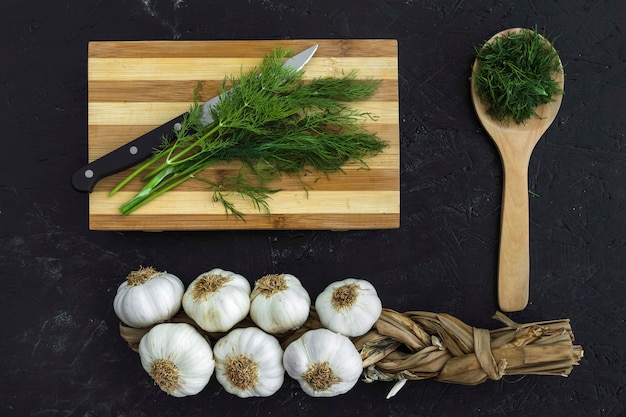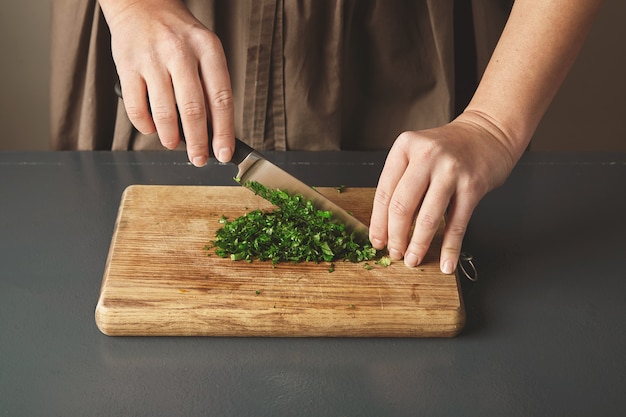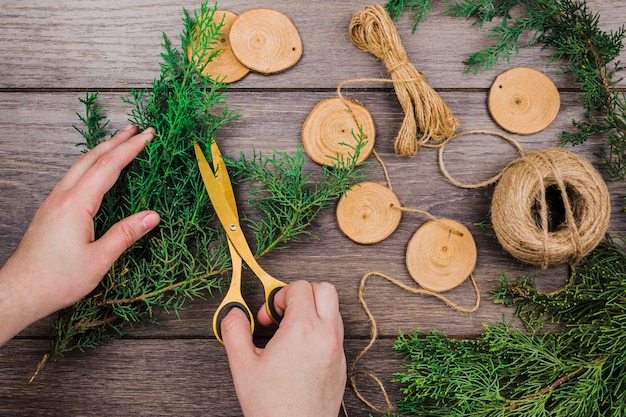(Part 1) The Lowdown on Fennel

Fennel's Flavour and History
Let's start with the basics. Fennel has a distinct licorice-like flavour, which can be quite strong, but it's also subtly sweet and refreshing. This unique taste comes from anethole, a natural compound found in fennel seeds. It's been used for centuries not only for its flavour but also for its medicinal properties. Ancient Romans believed it could improve eyesight, while the Greeks used it to treat digestive problems.Types of Fennel
You'll typically find two main types of fennel in the supermarket: Florence Fennel: This is the most common type, with a large, bulbous base and feathery green fronds. It's what most people think of when they hear "fennel." Finocchio: This variety is smaller and sweeter than Florence fennel. It's often used in salads and can be eaten raw.Choosing the Right Bulb
When choosing fennel, look for a bulb that's firm and crisp, with a bright green colour. Avoid any bulbs that are wilting, bruised, or have brown spots. The fronds should also be fresh and vibrant, not limp or yellowed.Storing Fennel
Once you've got your fennel home, store it properly to keep it fresh and flavorful. Wrap the bulb in a damp paper towel and store it in a plastic bag in the fridge. The fronds can be stored separately in a sealed container. This way, you can enjoy your fennel for up to a week!(Part 2) Preparing Fennel

Cleaning and Trimming
Before you start cooking, you'll need to clean and trim your fennel bulb. Wash it thoroughly under cold running water, ensuring all traces of dirt are removed. Next, trim the top of the bulb, leaving about an inch of the stalk. This stalk will be used later in your dish.Separating the Fronds
The feathery fronds, often called "fennel tops," are just as delicious as the bulb itself! Gently separate them from the base of the bulb, being careful not to tear or damage them. You can use them to add flavour and aroma to sauces, dressings, soups, or even as a garnish.Slicing and Dicing
Fennel can be sliced, diced, or chopped, depending on the recipe. For salads, I usually slice it thinly. For soups and stews, I tend to chop it more coarsely. If you're using fennel in a pasta sauce, it can be chopped finely, but you can also use a mandoline to create thin slices for a more visually appealing dish.Using a Mandoline
Using a mandoline is a great way to get perfectly thin slices of fennel. It's also a lot safer than using a knife, especially if you're working with a large bulb. Just be sure to use a mandoline guard to protect your fingers!(Part 3) Fennel Recipes to Try

Simple Roasted Fennel
This is a truly brilliant way to bring out the natural sweetness of fennel. Simply slice the bulb into wedges, drizzle with olive oil, season with salt and pepper, and roast in a preheated oven until golden brown and tender. It's a perfect side dish for grilled fish or chicken.- Preheat your oven to 400°F (200°C).
- Slice the fennel bulb into wedges, about ?? inch thick.
- Place the wedges in a single layer on a baking sheet.
- Drizzle with olive oil and season generously with salt and pepper.
- Roast for 20-25 minutes, or until tender and golden brown.
Fennel and Sausage Soup
A hearty and comforting soup that's perfect for a chilly evening. Sauté chopped fennel with onions and garlic, then add italian sausage, vegetable broth, and a pinch of red pepper flakes. Simmer until the sausage is cooked through and the fennel is tender.- Sauté diced onion and garlic in olive oil until softened.
- Add chopped fennel and cook until it softens and becomes fragrant.
- Crumble in Italian sausage and cook until browned.
- Pour in vegetable broth and add red pepper flakes.
- Simmer for 20 minutes, or until the sausage is cooked through and the fennel is tender.
- Season with salt and pepper to taste.
Fennel and Lemon Pasta
A simple yet delicious pasta dish that's bursting with flavour. Saute sliced fennel with garlic and olive oil, then toss it with cooked pasta, fresh lemon juice, and grated parmesan cheese.- Cook your pasta according to package directions.
- While the pasta is cooking, sauté sliced fennel with garlic and olive oil.
- Drain the pasta and add it to the pan with the fennel.
- Add fresh lemon juice and grated parmesan cheese.
- Toss to combine and serve immediately.
(Part 4) Beyond the Basics: Cooking with Fennel Fronds
The Versatile Fronds
As mentioned earlier, the fronds of the fennel bulb are just as delicious as the bulb itself! They have a milder, more delicate flavour, and can be used in a variety of ways.Infusing Oils and Vinegars
You can infuse olive oil or vinegar with fennel fronds for a lovely aroma and flavour. Simply add a few fronds to a bottle of oil or vinegar and let it steep for a few days, then strain before using. This infused oil or vinegar adds a unique touch to salads, marinades, and even roasted vegetables.Adding Flavour to Sauces and Dressings
Finely chopped fennel fronds can be added to sauces, dressings, and marinades for a fresh and herbaceous touch. They work particularly well in pesto, chimichurri, and vinaigrette.Garnishing Dishes
Fennel fronds make a beautiful and flavourful garnish for soups, salads, pasta dishes, and grilled meats and fish. Their delicate, feathery texture and subtle flavour add a final touch of elegance and sophistication to any dish.(Part 5) cooking tips for Fennel Success
Don't Overcook It
Fennel can become tough and bitter if overcooked. Be sure to cook it until tender but still slightly crunchy.Use a Sharp Knife
A sharp knife is essential for slicing and chopping fennel. It will prevent the bulb from becoming bruised and ensure that the pieces are cut evenly. A dull knife will make it harder to cut through the tough fibres of the fennel, and can result in uneven pieces.Don't Be Afraid to Experiment
Fennel is a versatile ingredient that can be used in many different ways. Experiment with different recipes and techniques to find your favourite ways to cook it. Try adding fennel to curries, stir-fries, or even baked goods for a unique flavour twist.(Part 6) Fennel and Health
Fennel is not just a delicious ingredient; it's also packed with nutrients and antioxidants. It's a good source of vitamin C, potassium, and fiber, which are all important for maintaining good health.Benefits of Fennel
Aids Digestion: Fennel has been traditionally used to aid digestion, and modern research supports this claim. It contains compounds that can help to stimulate the digestive system, reduce bloating, and relieve gas. Anti-inflammatory Properties: Fennel contains compounds that have anti-inflammatory properties, which can help to reduce inflammation throughout the body. This can be beneficial for conditions such as arthritis and asthma. Antioxidant Power: Fennel is a good source of antioxidants, which help to protect the body from damage caused by free radicals. These free radicals can contribute to aging and chronic diseases, such as cancer and heart disease. Good for Eyesight: Fennel is rich in vitamin A, which is essential for maintaining good eyesight. It can also help to prevent age-related macular degeneration, a common eye condition.(Part 7) Fennel in the Garden
If you're feeling ambitious, why not try growing your own fennel? It's a relatively easy plant to grow, and it can be a beautiful addition to your garden.Growing Fennel
Sunlight: Fennel needs at least 6 hours of sunlight per day. Soil: It prefers well-drained soil, but can tolerate a variety of soil types. Watering: Water regularly, especially during dry periods. Harvesting: You can harvest fennel bulbs when they are about the size of a grapefruit. Harvest the fronds as needed, or you can let them grow and harvest them all at once.(Part 8) The Fennel Family
Fennel is actually part of the carrot family, and it's closely related to dill, anise, and caraway. All of these herbs have similar flavour profiles and can be used in similar ways.Related Herbs
Dill: Dill has a fresh, slightly tangy flavour and is often used in salads, sauces, and fish dishes. Anise: Anise has a strong, sweet licorice flavour and is often used in desserts, baked goods, and liqueurs. Caraway: Caraway has a warm, slightly bitter flavour and is often used in breads, sausages, and cheeses.(Part 9) Delicious Fennel Pairings
Fennel pairs beautifully with a variety of other ingredients, both sweet and savoury. Here are a few of my favourite combinations:Savoury Pairings
Citrus: Fennel and citrus, especially lemon, orange, and grapefruit, make a delightful combination. The acidity of the citrus cuts through the aniseed flavour of the fennel and adds a bright and refreshing note. Garlic: Garlic and fennel are a classic pairing, both in flavour and in aroma. They work well together in soups, stews, and sauces. Seafood: Fennel complements seafood beautifully, particularly fish with a delicate flavour, such as cod, halibut, and sole. The aniseed flavour of the fennel enhances the natural sweetness of the fish. Cheese: Fennel goes well with cheeses such as parmesan, goat cheese, and ricotta. The creamy texture of the cheese balances the slightly crunchy texture of the fennel. Nuts: The crunchy texture of nuts, like walnuts, almonds, and pine nuts, pairs well with fennel. They add a nutty flavour and a nice textural contrast.Sweet Pairings
Apples: The sweet and tart flavour of apples pairs well with the aniseed flavour of fennel. Try them together in a salad or a pie. Figs: The sweetness of figs and the aniseed flavour of fennel complement each other perfectly. Use them together in a salad, a tart, or a compote. Honey: Honey and fennel make a wonderful pairing. The sweetness of the honey balances the aniseed flavour of the fennel. Try adding a drizzle of honey to roasted fennel or using it in a vinaigrette for a fennel salad. Dates: The chewy texture and sweet flavour of dates pair well with fennel, adding a touch of richness. Try them together in a salad or a fruit platter.(Part 10) Beyond the Kitchen: Other Uses of Fennel
Fennel isn't just for cooking! It has a long history of use in traditional medicine and aromatherapy.Traditional Medicine
In traditional medicine, fennel has been used to treat a variety of ailments, including digestive problems, respiratory issues, and menstrual cramps. It's often used in herbal teas and supplements.Aromatherapy
Fennel essential oil is often used in aromatherapy to promote relaxation and reduce stress. It can also be used to help relieve headaches and muscle tension. Add a few drops to a diffuser or massage oil for a calming and refreshing experience.FAQs
Q: What does fennel taste like?
Fennel has a distinctive licorice-like flavour, which can be quite strong. It also has a hint of sweetness and a refreshing, almost citrusy aroma. The flavour is milder in the fronds than in the bulb.
Q: What is the best way to store fennel?
To keep fennel fresh, wrap it in a damp paper towel and store it in a plastic bag in the refrigerator. The fronds can be stored separately in a sealed container. With proper storage, fennel should last for up to a week.
Q: Can I eat the fennel fronds?
Absolutely! The fronds are just as delicious as the bulb and can be used in a variety of ways. They have a milder, more delicate flavour and can be used to add flavour to sauces, dressings, and marinades, or as a garnish.
Q: How do I know when fennel is ripe?
Fennel is ripe when the bulb is firm and crisp, with a bright green colour and no signs of wilting or damage. The fronds should also be fresh and vibrant.
Q: What are some other ways to use fennel besides cooking?
Fennel has a long history of use in traditional medicine and aromatherapy. It's often used to treat digestive problems, respiratory issues, and menstrual cramps. Fennel essential oil is often used in aromatherapy to promote relaxation and reduce stress.
Final Thoughts
Well, there you have it! Everything you need to know about cooking with fennel. I hope this guide has inspired you to give this amazing ingredient a try. It's truly one of my favourite vegetables, and I'm sure it will quickly become a favourite in your kitchen too! Remember, the key to cooking with fennel is to have fun and experiment! You can add a touch of flavour and freshness to any dish with a little bit of fennel. So go on, get creative and see what you can come up with!Everyone is watching

How to Cook Frozen Lobster Tails Perfectly: A Step-by-Step Guide
RecipesLobster. Just the word conjures up images of lavish meals, special occasions, and a taste of luxury. But let's...

Pigs in a Blanket Cooking Time: How Long to Bake for Perfect Results
RecipesAh, pigs in a blanket. Just the name conjures up images of those delightful little parcels of crispy pastry en...

Pork Fillet Cooking Time: How Long to Cook It Perfectly
RecipesPork fillet, or tenderloin as it's sometimes called, is a real favourite in our house. It's so versatile, and...

The Ultimate Guide to Cooking Delicious Frankfurters
RecipesLet's face it, we all love a good frankfurter. It's a classic, simple, and always satisfying. But let's be rea...

Wolf Meat Recipes: A Guide to Cooking Wild Game
RecipesLet's be honest, you don't see wolf meat at your local butcher shop every day. It's a bit of a wild card, but ...
